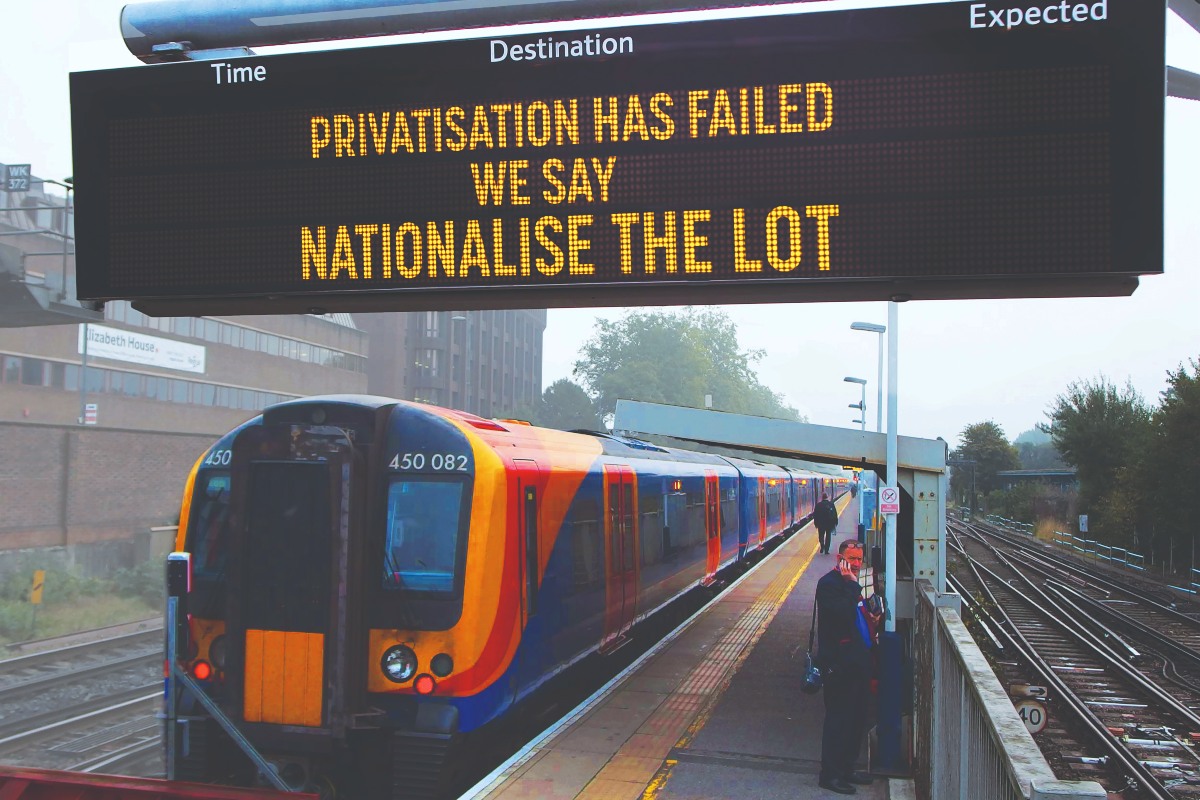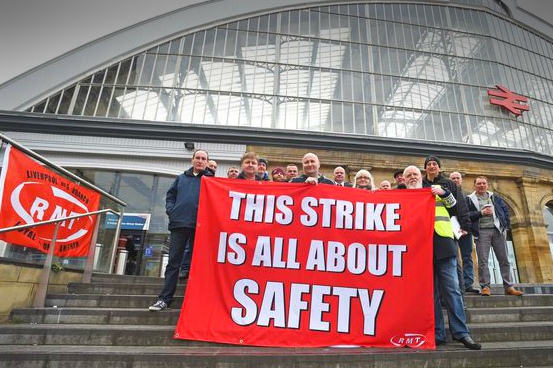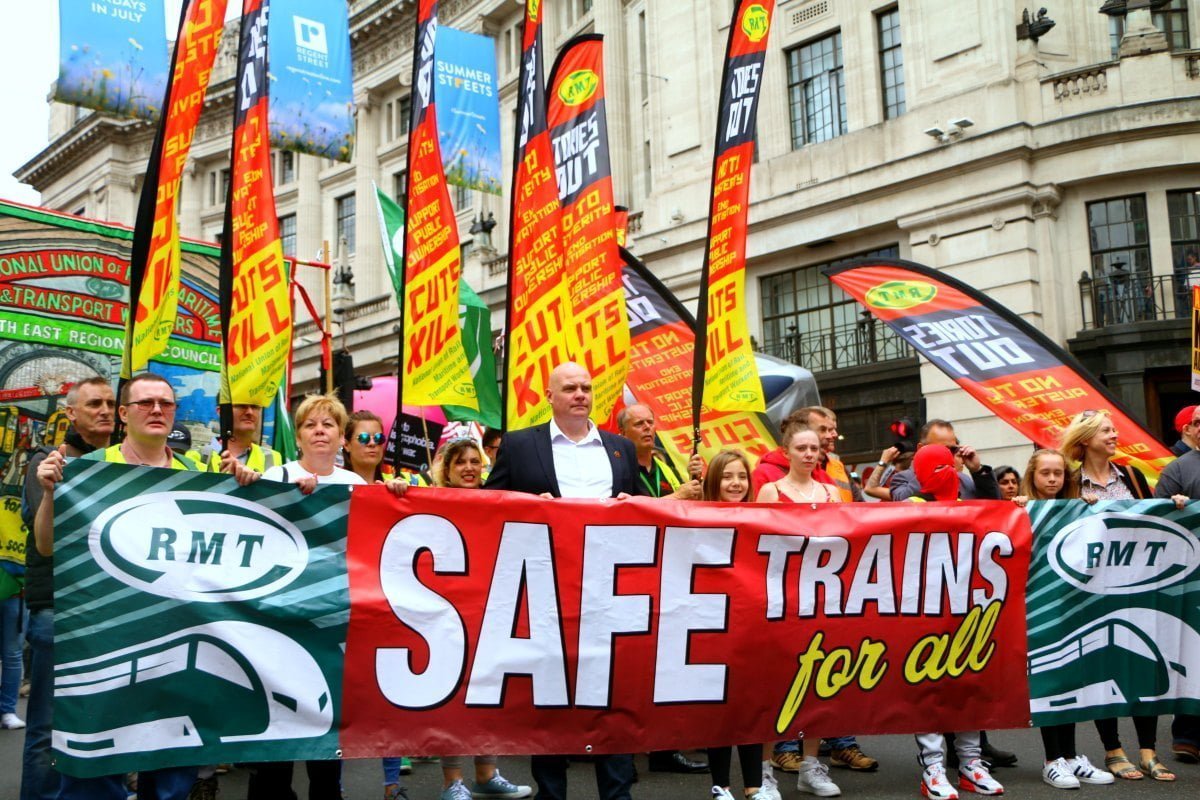RMT members could be taking strike action in response to the discovery of Legionella on Thameslink trains. Under private ownership, rail bosses have prioritised profits over cleanliness. To guarantee safety, we need workers’ control.
Anyone who has had the ‘pleasure’ of travelling on the UK’s private rail network knows full well that cleanliness in toilet facilities (or the lack thereof) is a near universal issue. This is a consequence of private rail itself: when profit is the only priority, then shortcuts are inevitable.
A June 2021 report from the National Union of Rail, Maritime, and Transport Workers (RMT) entitled Cleaning Up The Railways makes this point clearly.
The report found that “more than 30 cleaning operations on the rail franchises” have been outsourced. This has created a low-paid cleaning workforce, usually on or around the minimum wage.
Conditions for this casualised workforce are dire. The report found that more than a third of cleaners are worried that they are not getting the right PPE; almost half think that there aren’t enough staff to do their jobs properly; and one third said that the number of cleaners has fallen in the last three years, with one in five reporting that they have fallen even since the start of the pandemic.
Profits vs safety
 According to the RMT, with rail bosses’ profits on the line, there is a constant “thinning out of cleaners, as companies strive to cut costs and create profits in a labour-intensive industry”.
According to the RMT, with rail bosses’ profits on the line, there is a constant “thinning out of cleaners, as companies strive to cut costs and create profits in a labour-intensive industry”.
In addition, “many companies are not conducting frequent deep cleans of trains or stations”. This constitutes a major health risk – particularly with the added danger of COVID.
Hypocritical Tories offer hollow declarations of support to cleaners and frontline workers – those who have kept society running during the pandemic. But the reality is that they do not care one bit about ordinary workers.
When it comes to the railways, the Conservatives are quite content to treat their friends in the private sector with an exceedingly light touch in terms of enforcing any kind of standards.
Outbreak
These truly shocking health and safety conditions have recently come to a head on Thameslink trains (GTR), where actionable traces of Legionella (a bacteria responsible for the potentially deadly Legionnaires disease) have been found in seven toilets on four different trains.
In response, the RMT has declared a serious dispute, threatening to ballot for strike action if GTR and Siemens (the company that manufactures the trains in question) “don’t take urgent action to resolve the crisis”.
Rail union RMT declares dispute over Legionella outbreak on Thameslink trainshttps://t.co/2xa9EBwmYv pic.twitter.com/EL7FdLb61G
— RMT (@RMTunion) August 23, 2021
When questioned on the Legionella outbreak, GTR – which is the largest train-operating company in the UK – predictably tried to wriggle their way out of it. Disgracefully, they claimed that they were removing the affected trains from traffic only where “reasonably practicable” – i.e. at a glacial pace.
In the meantime, as long as affected trains remain in service, then infected toilets will be ‘isolated’ from staff and passengers. Considering the seriousness of a Legionella outbreak, this is as close to not reacting as possible.
Workers’ control
 The RMT are entirely right to take a stand on this issue and threaten strike action. This episode shows that the bosses will always prioritise their profits over protecting workers and passengers. Only by fighting back through collective action can rail workers ensure safe conditions on trains.
The RMT are entirely right to take a stand on this issue and threaten strike action. This episode shows that the bosses will always prioritise their profits over protecting workers and passengers. Only by fighting back through collective action can rail workers ensure safe conditions on trains.
Cleanliness is an issue that plagues all rail franchises and companies, however, not just Thameslink. As the recent RMT report concludes: “The best way to improve cleaning would be by nationalising the entire rail network and bringing these [cleaning] contracts in-house.”
We wholeheartedly agree. A unified publicly-owned transport system – run under workers’ control and with democratic planning – is the only way to ensure that we have a well-maintained and fully-functioning rail network; one that is affordable, safe, green, and clean.






